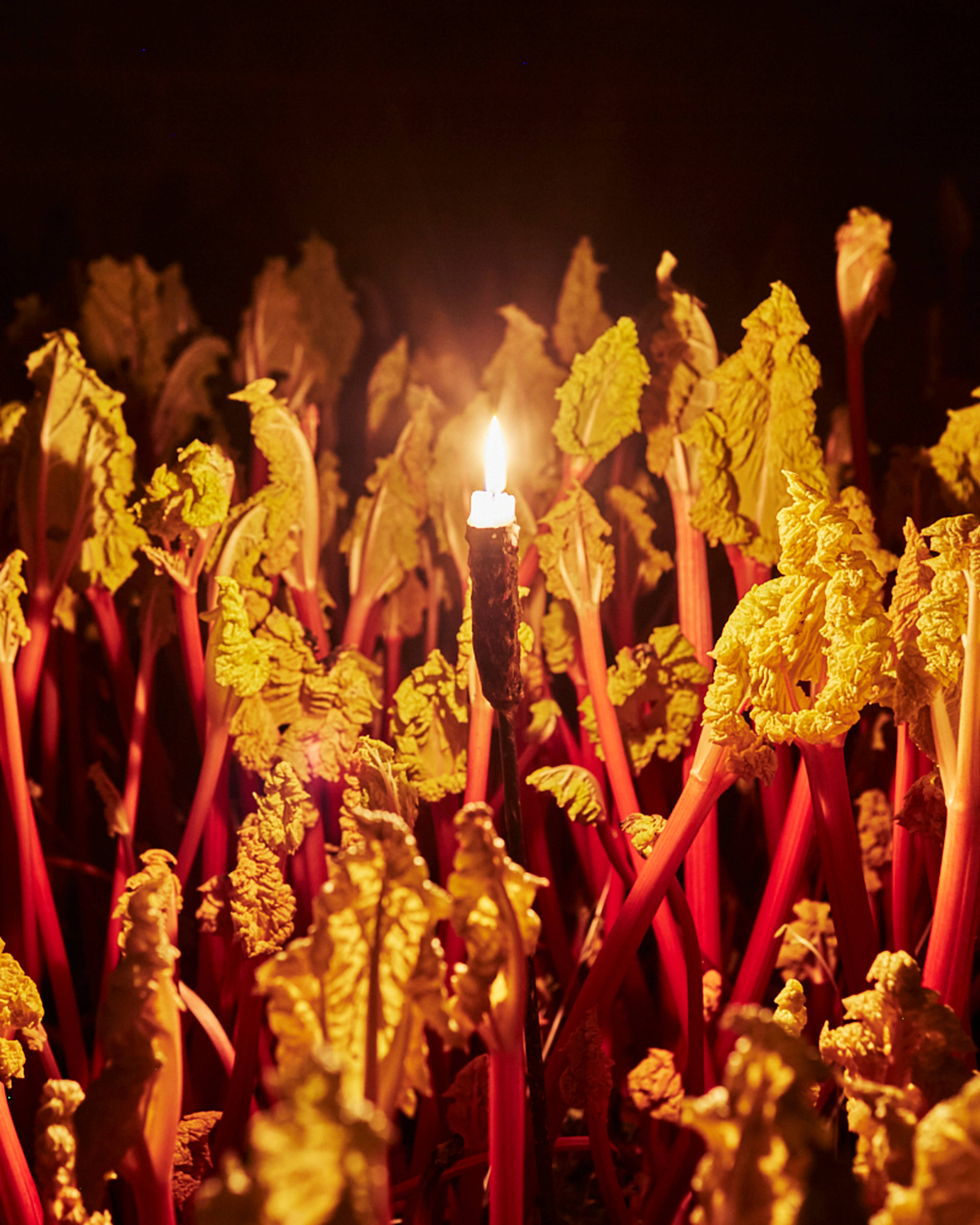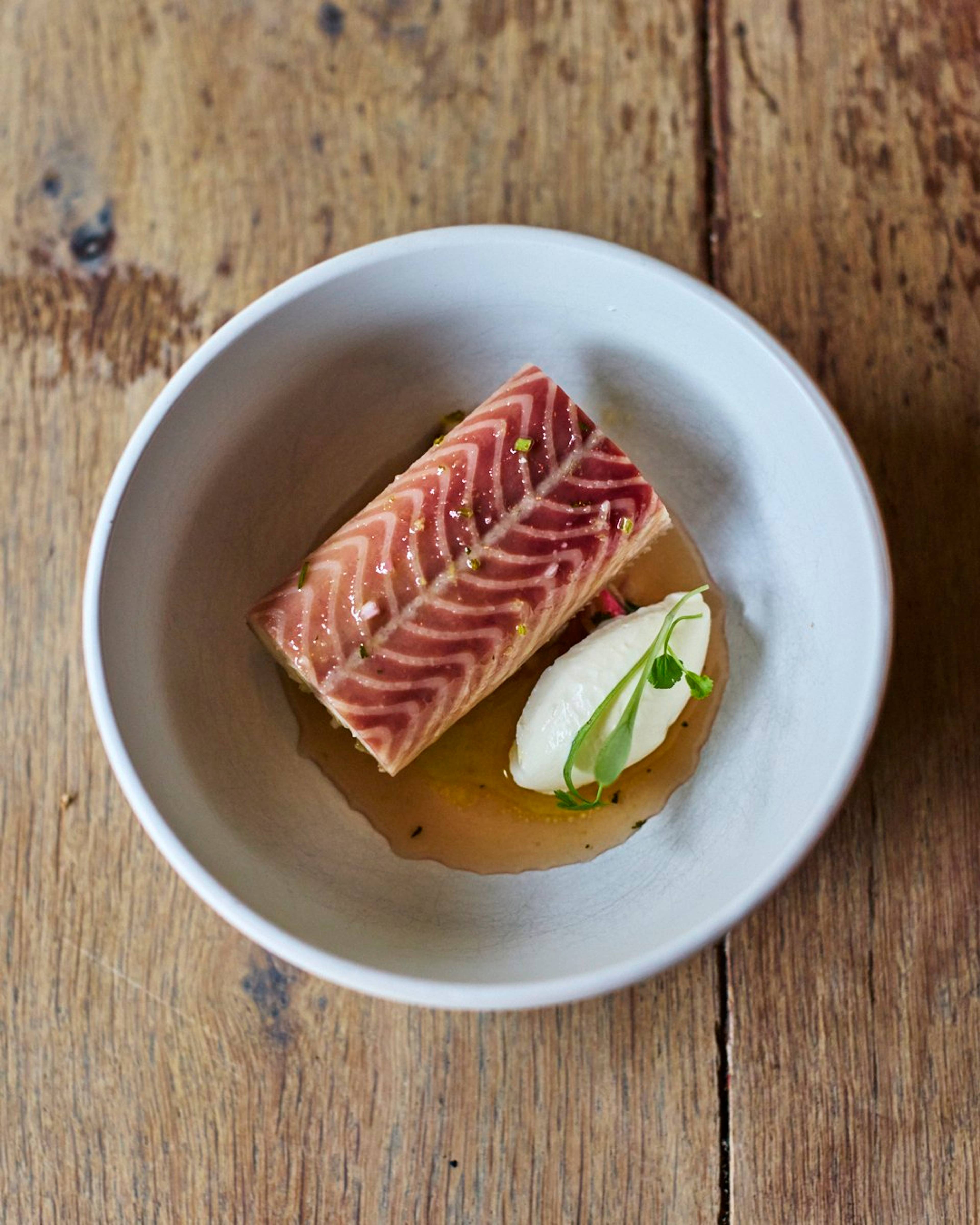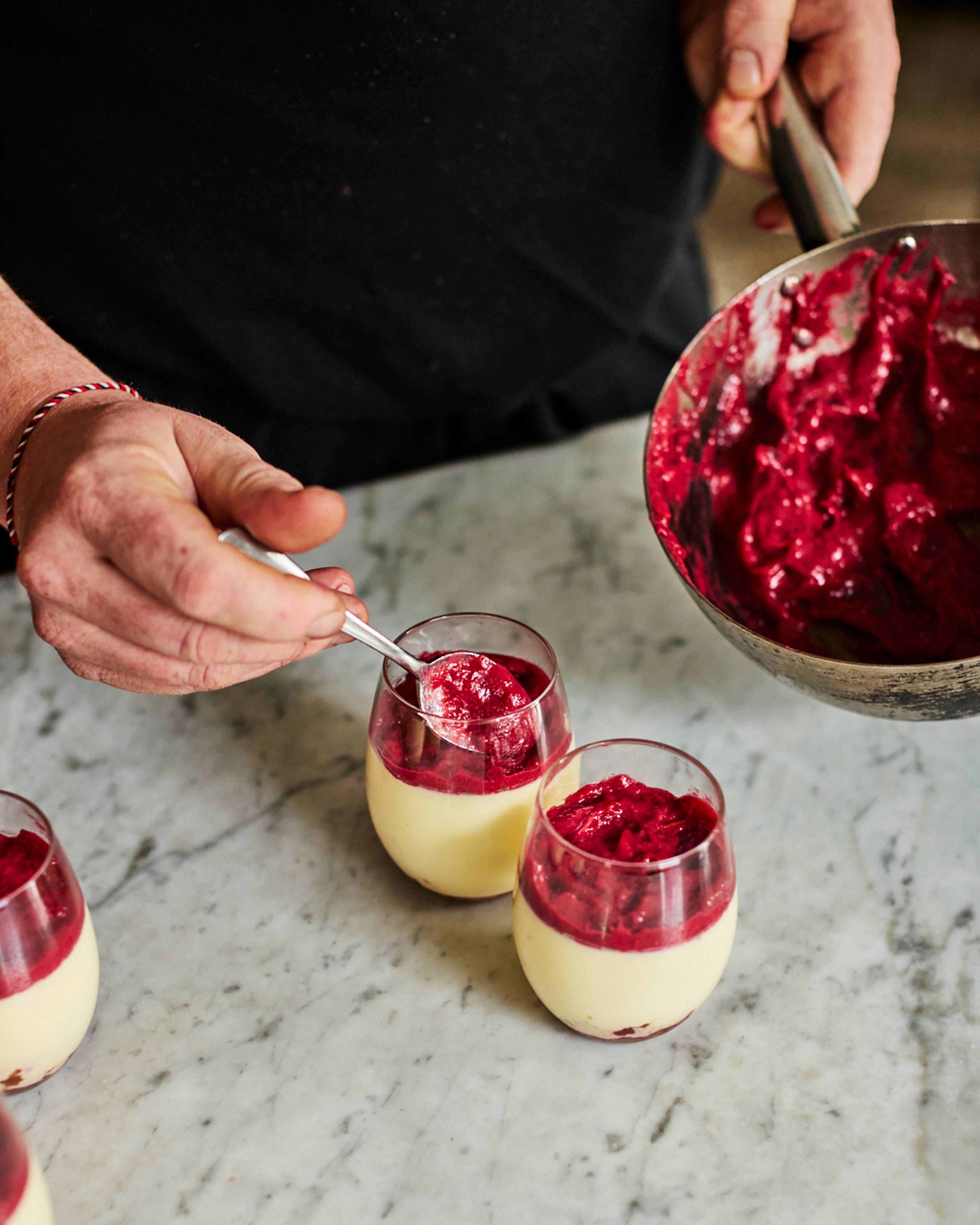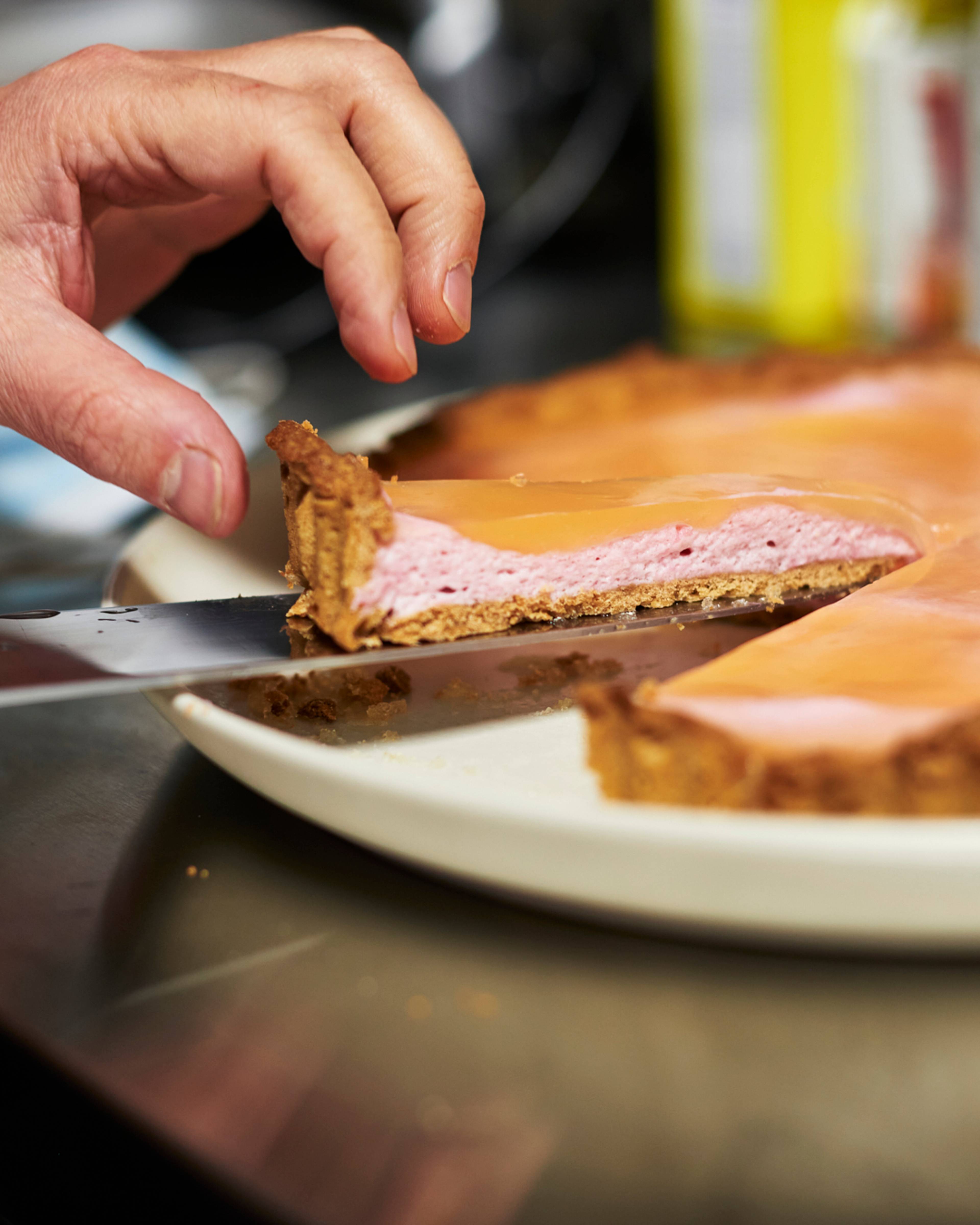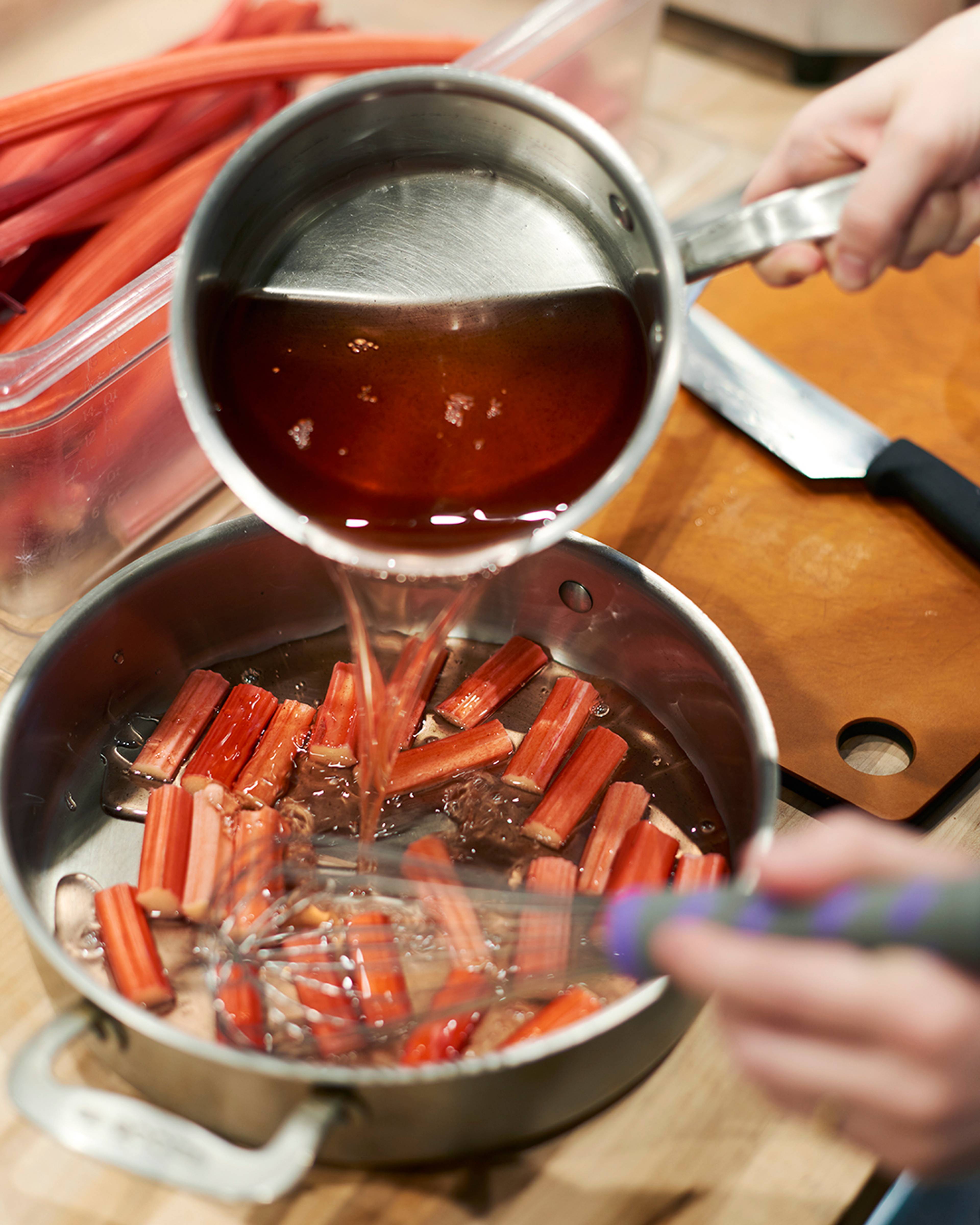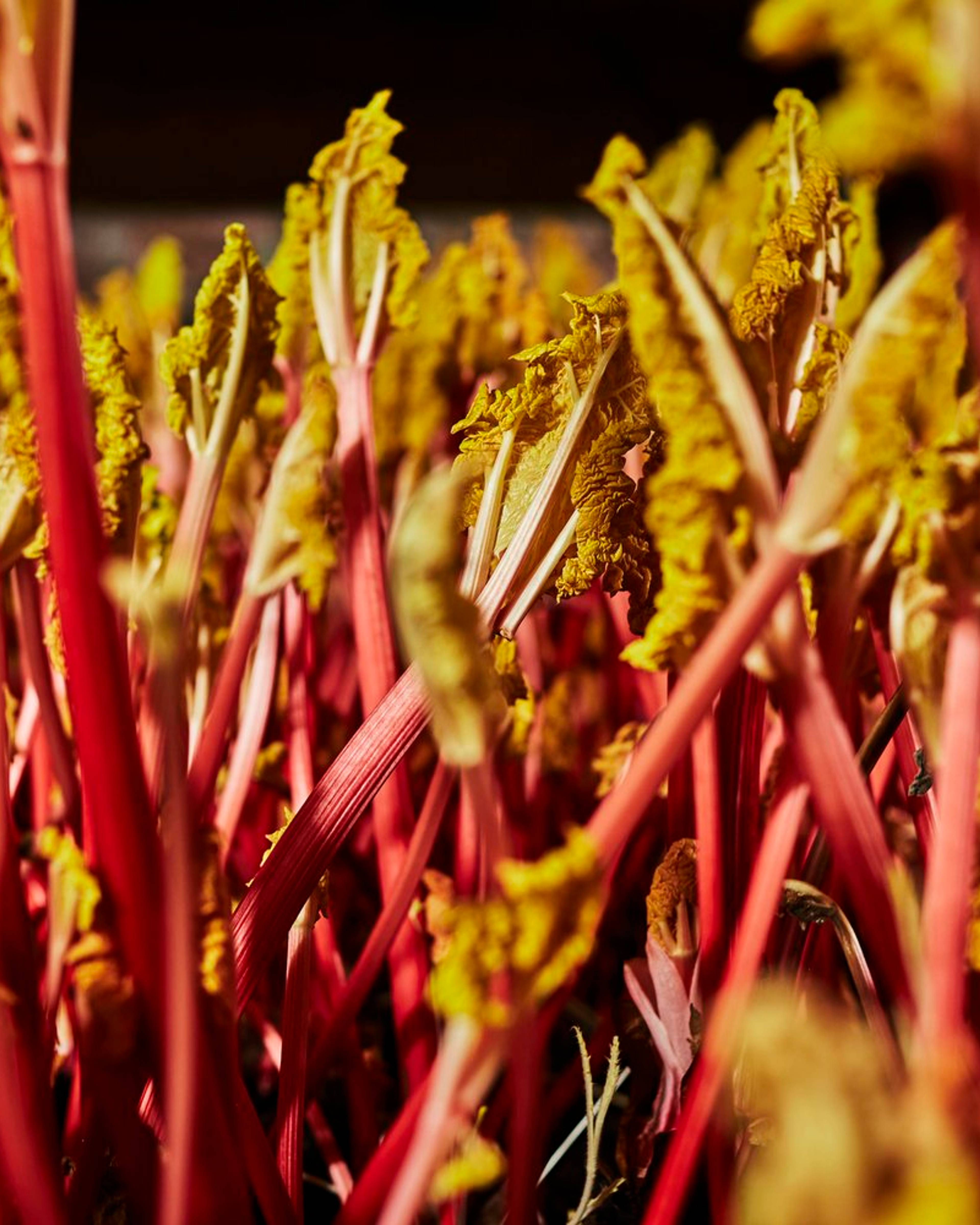RHUBARB JELLY WITH CREAM & BLOOD ORANGE
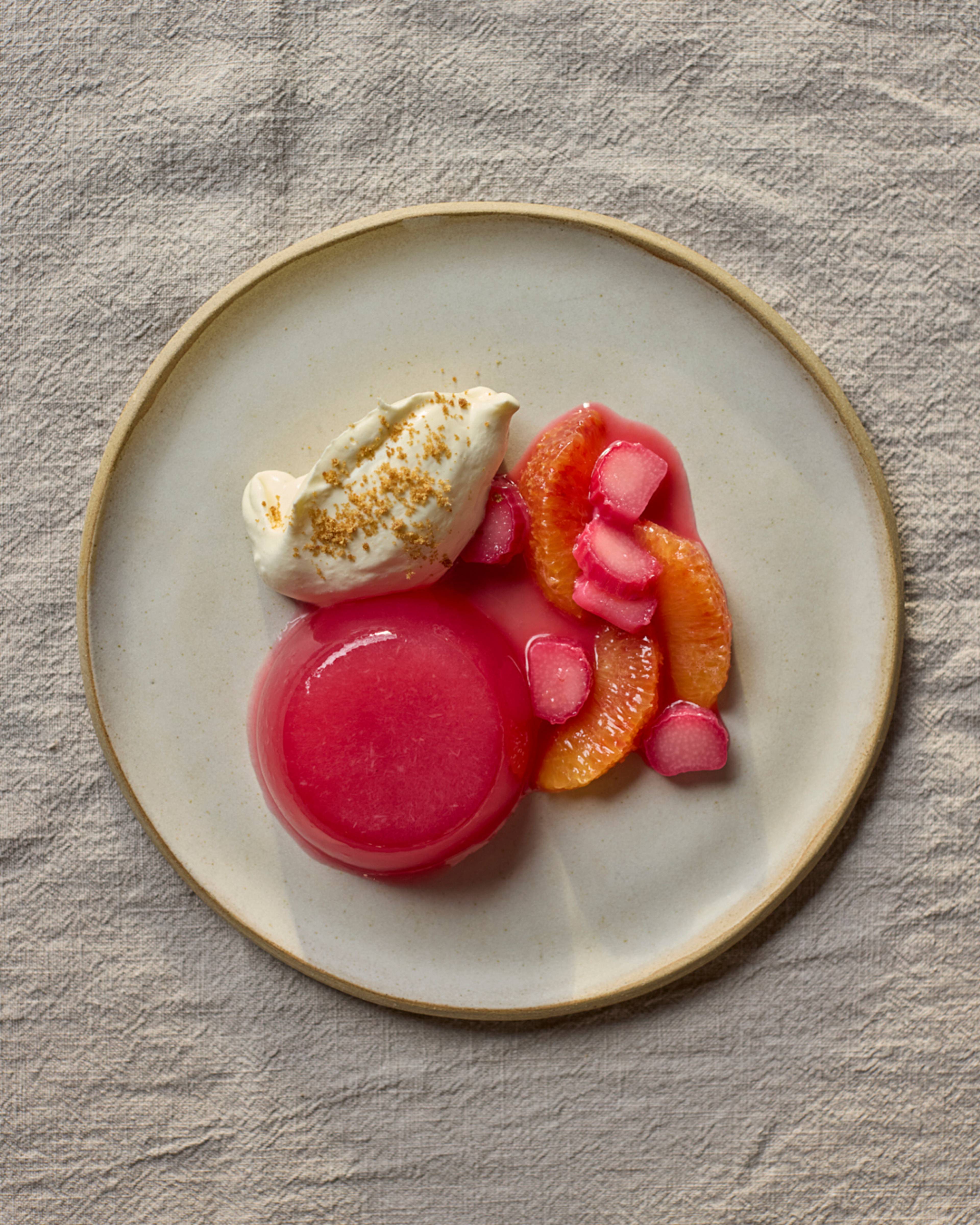
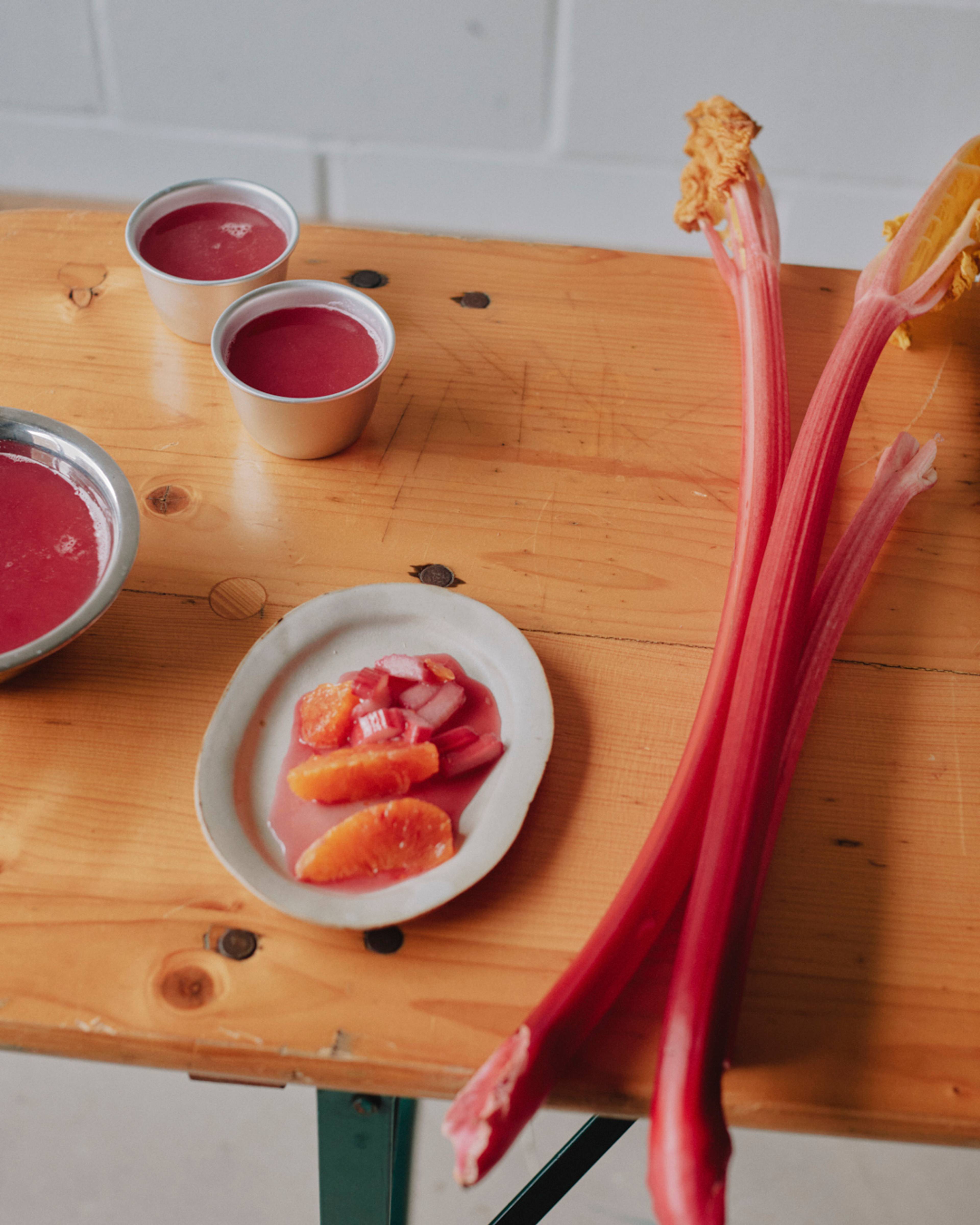
This recipe was created by our founder Franco Fubini in collaboration with Ffern, to celebrate the launch of their rhubarb scented perfume, Spring 24.
This jelly uses rhubarb from the Cook family, one of our growers in the Yorkshire Triangle. Follow his growing story in Ffern’s beautiful documentary. Without an essential oil itself, they have considered its aspects — tart but sweet and distinctly earthy to create their Spring 24 perfume. Here, Franco’s recipe hits on the same notes.
RHUBARB JELLY with cream and BLOOD orange
INGREDIENTS
4 stems of Yorkshire Forced Rhubarb
300ml water
Gelatin sheets (number of sheets depends on gelatin strength)
30g sugar
1 Blood Orange
A pinch of salt
200ml double cream
1 tbsp sugar
'The growers in the Yorkshire Triangle have generations of experience behind them. They stick to the old varieties and traditional methods and their Forced Rhubarb is something incredibly special. The flavor drives me crazy. It's really complex and earthy, totally unlike anything else.
The key with rhubarb is keeping it very simple. Yorkshire Forced Rhubarb is so tender you can actually eat it raw. Make your own sherbet dip by peeling away the outside skin (the only part that is mildly fibrous) and slicing batons into thin strips to dip in sugar.
For a dessert, the purity and tartness of Yorkshire Forced Rhubarb really comes through in a jelly, where there is nothing overshadowing it. This recipe is inspired by St John’s seasonal jellies, where my wife and I would often go when we were first dating. This recipe makes 650ml of jelly liquid, which is approximately five individual jellies, depending on your mold size.' — Franco
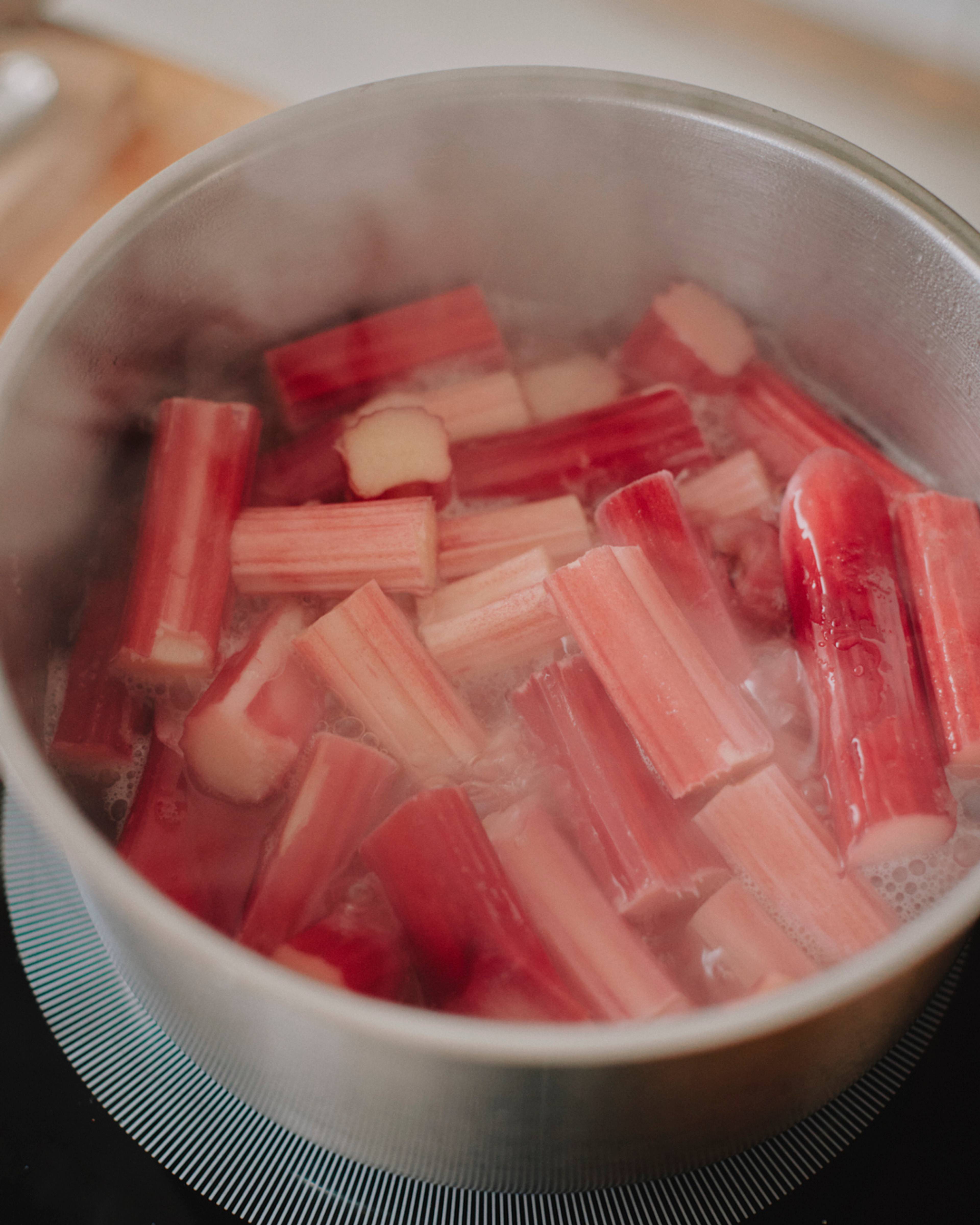
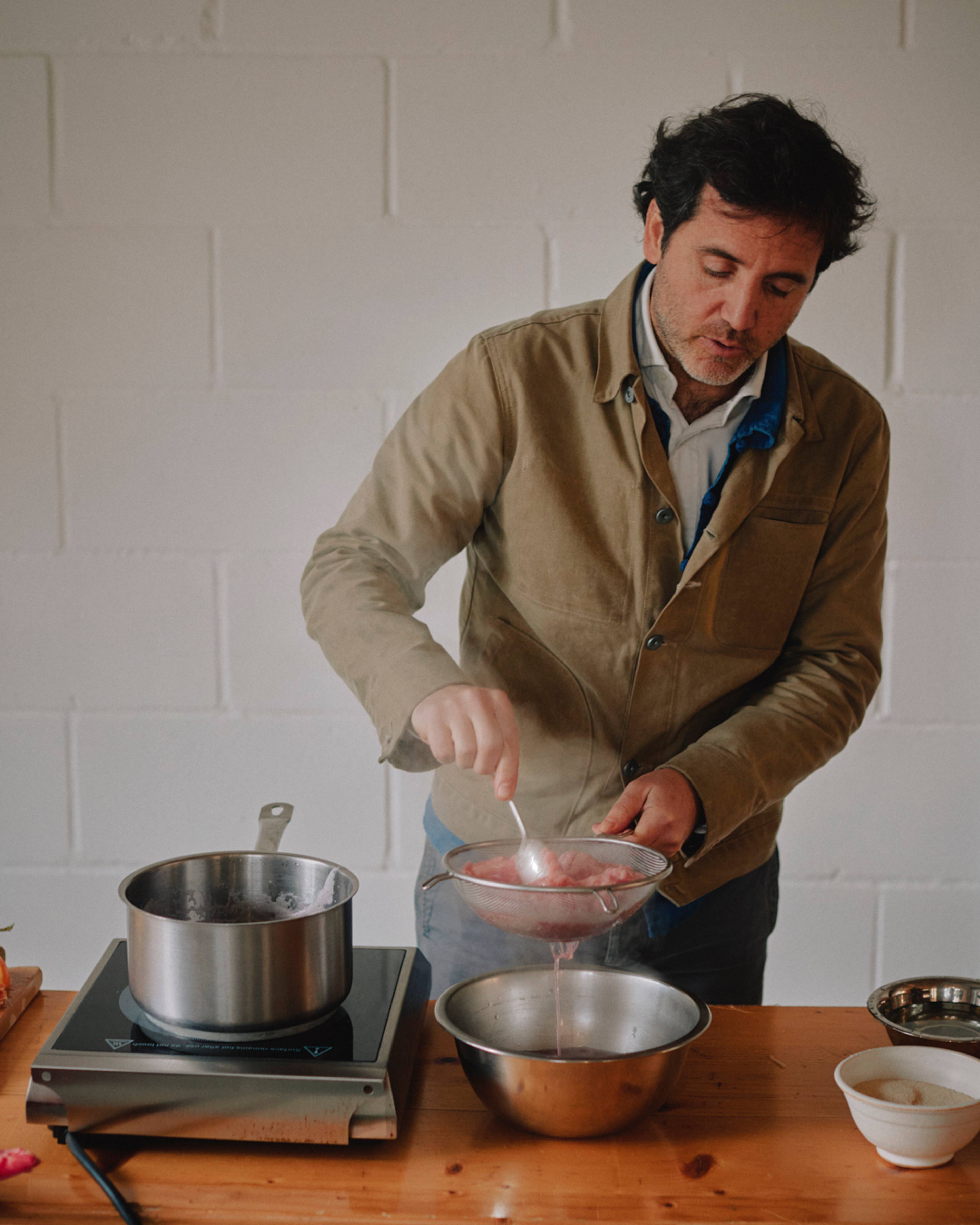
METHOD
- Chop three of the rhubarb stems into two inch pieces and stew them in a pan with the water. It will take about five minutes on a medium heat for the stems to break down fully and release their juices.
- Using a very fine sieve, separate the juice from the cooked rhubarb. Push down with the back of a spoon to ensure all the juice has been squeezed out. The leftover cooked rhubarb pulp can be used in a tart or crumble — it will still have a great flavor.
- Once all the hot liquid has been squeezed out, reserve two tablespoons for later and add the sugar to the rest. I like quite a tart jelly, allowing the acid notes of the rhubarb to really come through. Add more sugar if you prefer.
- Weigh your rhubarb juice and calculate the right amount of gelatin to add, then soften the sheets in cold water. Once totally soft, add the gelatin to the hot rhubarb liquid and stir to dissolve. Divide up the liquid into the jelly molds and refrigerate for at least four hours until the jelly sets.
- Before serving, whip the cream and set aside. Next, chop the last stem of rhubarb into neat 0.5cm slices and segment the Blood Orange. Gently cook the rhubarb in a saucepan with the two tablespoons of liquid you set aside earlier and a pinch of salt. When it’s almost done, add the orange segments to warm through. Watch it carefully — you want the rhubarb to hold its shape and not break down.
- To serve, dip each jelly mold in warm water to help ease it out onto a plate. Serve with a spoonful of whipped cream and a spoonful of the warmed orange and rhubarb. Sprinkle a little panela sugar over the cream to finish.
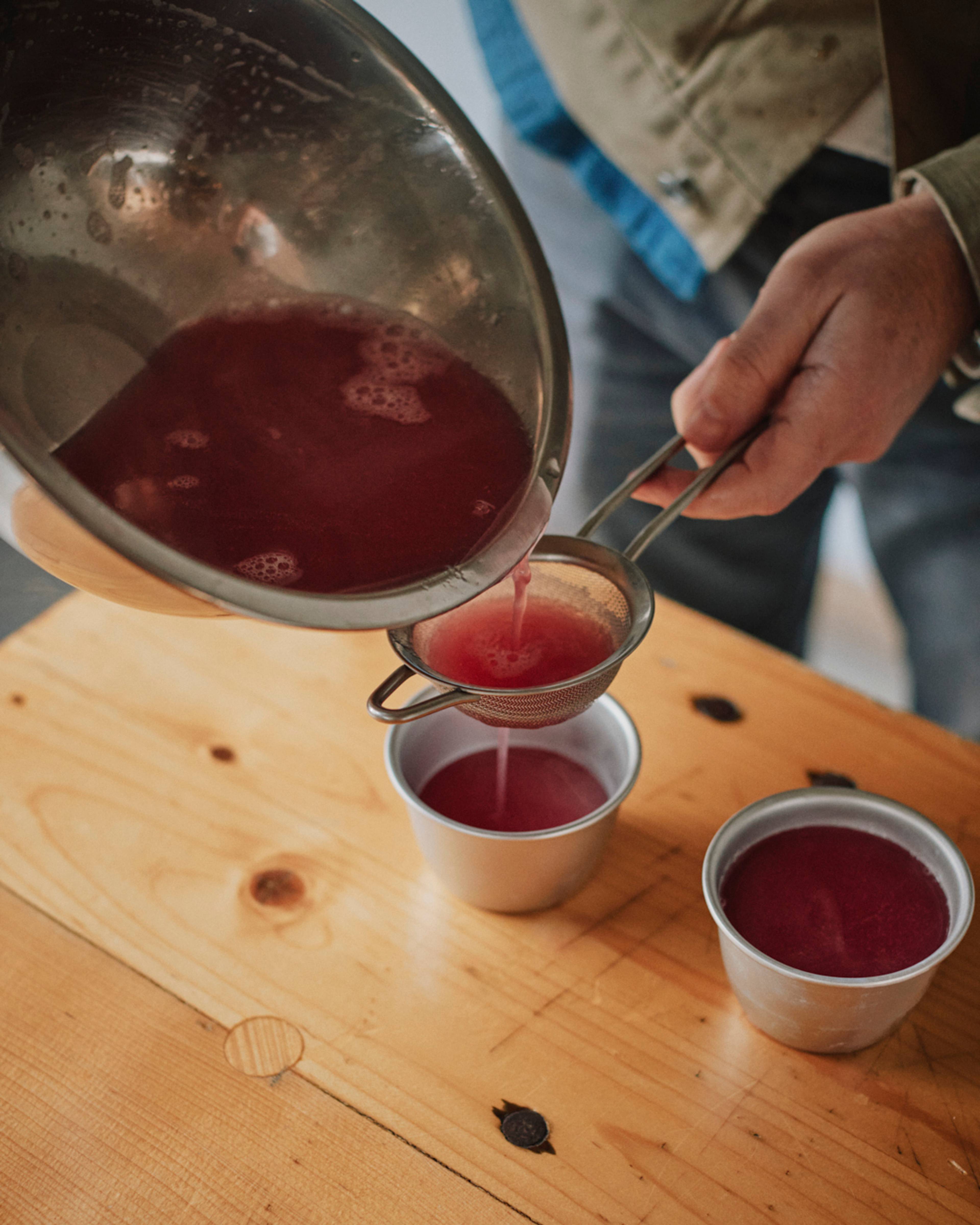
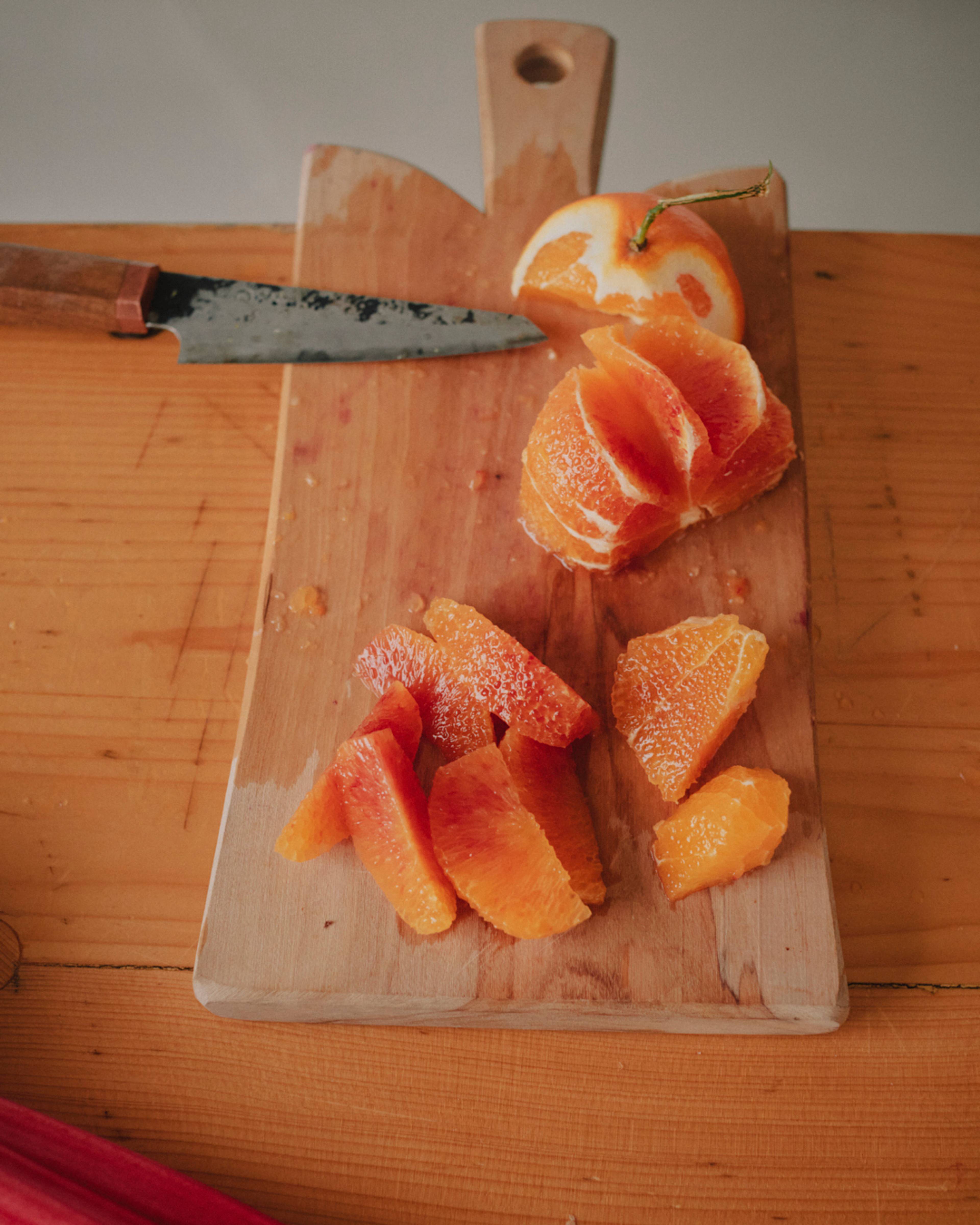
Stories
See allWe exist to fix the food system.
People are more cut off from the origins of their food than ever. This makes flavor, nutrition and farming practices that protect the planet, almost impossible to find.
By working directly with growers, we create a more sustainable way forward for farming. By giving everyone the tools to understand the power of our food choices, we empower everybody to become drivers of change.
Now is the time for action. Join the food system revolution.

Go beyond four seasons
Each fruit and vegetable has its own season, with subtle shifts which happen every day. Follow their microseasons to unlock flavor at every stage.
WHAT’S IN SEASON?

Know where your food comes from
We know the name of the person behind everything we source. Recognize their growing artistry to find out exactly where your food comes from (and why that matters).
MEET THE GROWERS

Make your diet diverse
Our growers work with varieties chosen for quality and nutrition, not yield. By selecting their crops you keep heritage seeds in play, add to ecosystem biodiversity and preserve unique flavors.
GO #OFFTHEPASS
United States
© 2025 Natoora Ltd.
